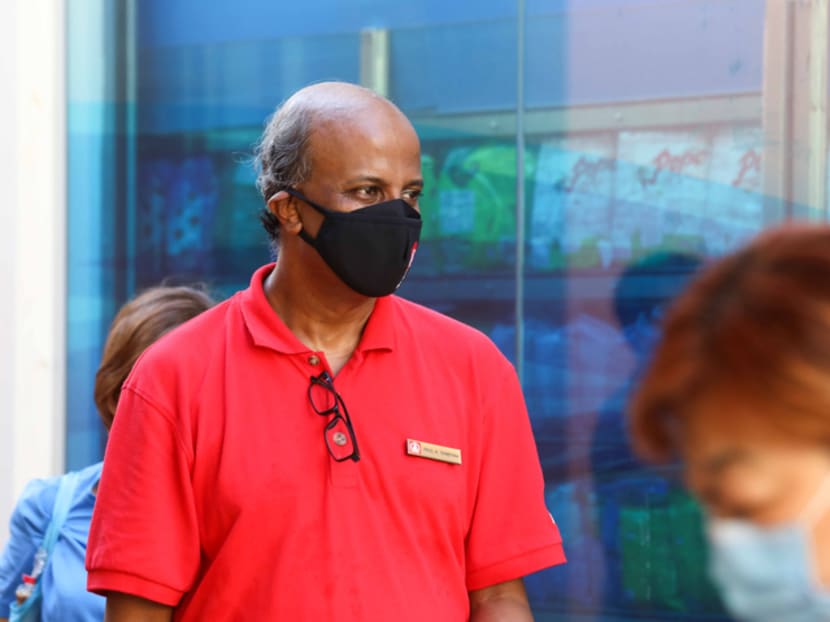SDP unveils Covid-19 exit plan calling for regular cluster reports, no blanket curbs or testing of asymptomatic vaccinated persons
SINGAPORE — The Singapore Democratic Party (SDP) has published an eight-point plan detailing how Singapore can exit the Covid-19 pandemic, with suggestions such as stopping the testing of vaccinated individuals who have no symptoms as a way to conserve resources for more urgent cases.
- The SDP has drawn up an eight-point plan with suggestions on how Singapore can deal with the Covid-19 pandemic
- The plan was put together by the party’s healthcare panel which includes infectious disease expert Dr Paul Tambyah, its chairman
- SDP said the Government’s multi-ministerial task force lack of coherence and direction has left Singaporeans confused and frustrated
SINGAPORE — The Singapore Democratic Party (SDP) has published an eight-point plan detailing how Singapore can exit the Covid-19 pandemic, with suggestions such as stopping the testing of vaccinated individuals who have no symptoms as a way to conserve resources for more urgent cases.
The opposition party’s plan to exit the pandemic was drawn up by its healthcare panel, which includes its chairman Paul Tambyah, president of the Asia Pacific Society of Clinical Microbiology and Infection.
SDP’s roadmap, published on its website on Tuesday (Sept 28), was accompanied by criticism that the Government’s multi-ministerial task force has been “plagued with a distinct lack of coherence and direction”, which has “left Singaporeans confused and frustrated”.
“The reactive nature of the multi-ministerial task force's approach in dealing with outbreaks of infections has led to stop-start, on-again/off-again policies, which had impacted adversely on both employers and employees,” it stated.
The party’s 10-member healthcare panel includes other experts in the medical field such as Dr Patrick Kee, a palliative medicine specialist; Dr Ang Yong Guan, chairman of the Action Group for Mental Illness; and several general practitioners (GPs).
THE EIGHT-POINT PLAN
SDP’s first point is to stop the testing of asymptomatic vaccinated individuals outside of contact tracing to help ensure that resources are concentrated on those who need them most — elders and the vulnerable who are infected.
Its second point is a suggestion that those who test positive, including pregnant women and children, must report to the nearest Public Health Preparedness Clinic, which are clinics activated in times of public health crisis to provide vaccination and healthcare.
The party said that this would allow medical professionals to evaluate the patients and decide if they need to be hospitalised or simply monitored over the week or so, just as “we do with other infectious diseases such as urinary tract infections or food poisoning”.
SDP added that GPs should be appropriately compensated for the care they provide.
For its third point, the party said that arrangements should be made to allow nursing homes to keep, but segregate, infected residents who are stable and do not need hospitalisation.
These patients will be checked on by GPs, who would decide when they need hospitalisation.
The rationale for this suggestion is to “relieve the strain on hospitals and ensure that those who need hospital care are not deprived or delayed”.
Its fourth point is setting up a dedicated ambulance phone line for those who have tested positive for Covid-19 or are identified as close contacts of an infected person.
This is similar to what was used during the severe acute respiratory syndrome (Sars) crisis, and would allow patients to be quickly taken to the hospital if their pulse oximeter readings show evidence of low oxygen concentrations in their blood.
SDP’s fifth point states that the authorities should publish regular reports on Covid-19 test positivity, as well as all the clusters in Singapore, along the lines of the Government’s recent decision to publish a map of emerging cases.
Professor Tambyah told TODAY that this should include the number of tests done for unique individuals, and the subsequent number who tested positive.
“That is a better indicator than simply providing the number of people who (test) positive... Many people think that the rise in the number of cases is because we are testing too many people,” he added.
These proposed reports would be similar to dengue cluster reports, and would enable the public to seek medical attention if they develop symptoms after visiting those areas.
The sixth point said that the task force should do away with blanket closures and restrictions on businesses and social interactions.
Instead, SDP suggested implementing targeted interventions such as shutting down a building or facility where an outbreak occurs, “instead of (imposing restrictions) across the whole island where outbreaks have not occurred”.
This suggestion is similar to when food poisoning or hand, foot and mouth disease outbreaks occur in childcare centres.
The seventh point is that the authorities should intensify molecular epidemiology processing or genetic fingerprinting.
Every public hospital and referral lab must perform this for every positive case, and the information should be fed into a database modelled on the Global Initiative on Sharing Avian Influenza Data by the World Health Organization (WHO).
This information should be made publicly available because it will help make the identification of large clusters reliable.
WHO's Global Initiative on Sharing Avian Influenza Data is an initiative that provides open-access to genomic data of influenza viruses and the coronavirus.
SDP’s final point states that all WHO-approved vaccines should be brought in for trials and studied as boosters or primary doses. These studies, Prof Tambyah said, should be commissioned and funded quickly.
The same should be done for other preventative agents that have shown promise in earlier randomised trials such as povidone iodine or ivermectin.
SDP said: “This will settle once and for all in a clear scientific manner many of the questions swirling around social media on alternatives to the current vaccination strategies.”
TODAY has sought comment on SDP’s plan from the Workers’ Party and Finance Minister Lawrence Wong, the co-chair of the task force.












